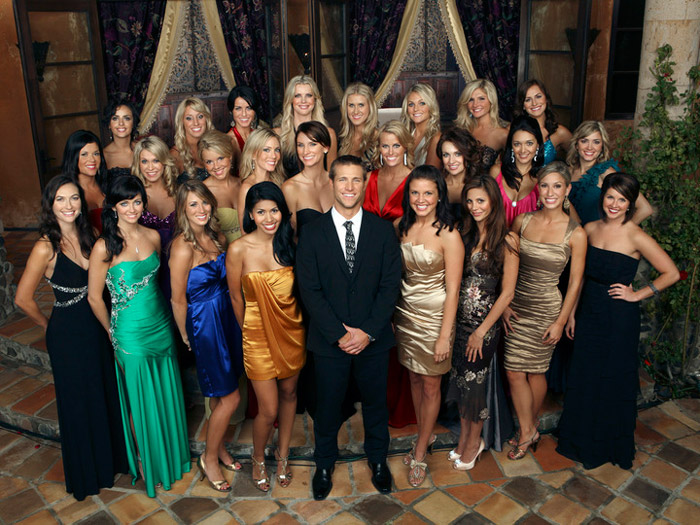In light of both the show’s season premiere just two weeks ago and former Bachelorette Andi Dorfman’s recent split from her reality TV lover, Josh Murray, I think it’s time that the Tribune take a deep, fleshy bite out of one of the most peculiar, borderline tragic, and simultaneously popular pieces of our mainstream culture: ABC’s The Bachelor. It would be a daunting task to point out all of the oddities and problematic aspects of the show, but let’s just start with some of the hard-hitters. The show, for those who don’t know, is meant to be a game show in which 25 contestants vie for the love of a single bachelor or bachelorette. Sure, it isn’t news that reality TV has to be provocative to be successful. Most of the time it’s pretty exploitive, and it sometimes blurs the lines with things that shouldn’t be conflated—for example, games and love. But when does provocative become unethical? And is there any kind of check on the amount of exploitation that goes on? The answer is—for better or worse—not really.
The show rests upon the fact that these people really do fall for each other. Sure, it’s manufactured to a degree—the producers jet the contestants around from island to island, leave unlimited booze in their hotel rooms, and talk the bachelor to the point where contestants believe he is more of a god than a single guy in his early thirties—but it’s clear that these people get genuinely invested. The tears come out almost immediately and without fail, the green-eyed monster of jealousy starts dealing out the most complex cards from a precariously shuffled deck by the very first group date (six girls, one guy).
The women on the show, who without a doubt believe in and practice traditional, hetero-normative relationships, are thrust into a giant, polyamorous, non-traditional spectacle and expected to fall in love. Copious amounts of cognitive dissonance ripen quickly: You watch the girls’ faces fall as the Bachelor cozies up with another contestant and they force themselves to bite their tongue. They acknowledge that it upsets them, but they still have this intense desire to uphold and respect the—entirely arbitrary—rules of the show. It’s okay if he kisses seven girls in one night; it’s okay that you become super close friends with the other girls dating the same guy as you; it’s not okay if a girl that has already received a rose takes time to talk to the bachelor. And it’s most definitely not okay for anyone to engage in any type of after-hours coitus with the bachelor (in the ocean or otherwise).
Cognitive dissonance is just one example of mental distress that contestants on a reality show might experience, and it seems the lines are blurry when it comes to informed consent. The girls obviously sign their lives away and are told that anything they say can and will be used in an effort to make the show as dramatic as possible.
I wonder to what degree participants on The Bachelor are prepared for the emotional turmoil that inevitably ensues. If anything, the producers probably want it to be as much of a shock as possible—why else would we hear the girls repeat over and over how they didn’t realize how difficult “this journey” would be? There gets to be a point where you go from laughing at the utter naiveté of the girls to truly wishing that the producers hadn’t chosen so many from under a medium IQ level—it just isn’t fair.
The psychological distress isn’t just encouraged; as the producers prod, poke, and leak bits of information to the contestants, the turmoil is practically cultivated—much like the crops of this season’s “Prince Farming” bachelor, Iowa farmer Chris Soules. In the 19th season of the franchise, it is refreshing to see a down-to-earth all-American guy as the bachelor rather than an underwear model searching for an acting career. Shouldn’t that mean that the franchise is looking to diversify the set of contestants too? Well, even following the infamous 2012 class action lawsuit accusing ABC of intentionally excluding people of colour from lead roles in both The Bachelor and The Bachelorette, it’s almost laughable how homogenous the group of contestants still are.
The show, point blank, is bonkers. Why do we watch it? Is it because we like to see these hyper-idealized romances fail in front of our eyes? Does it serve as some kind of outlet for our repressed human desire for polygamy? Or is it because we feel that regulated psychology experiments in research institutions are too limited by codes of conduct and academic integrity? Either way, there are no moral police shutting it down yet, so tune in to Season 19 of The Bachelor to enjoy the sick, but hilarious puppet show.










Whoever wrote this clearly doesn’t watch the bachelor